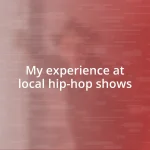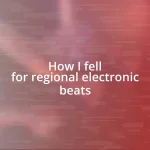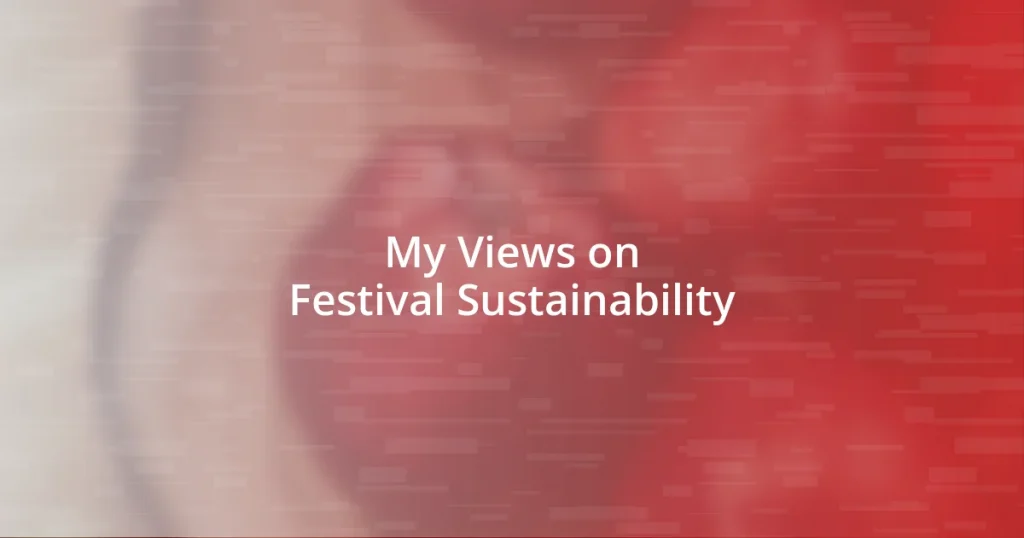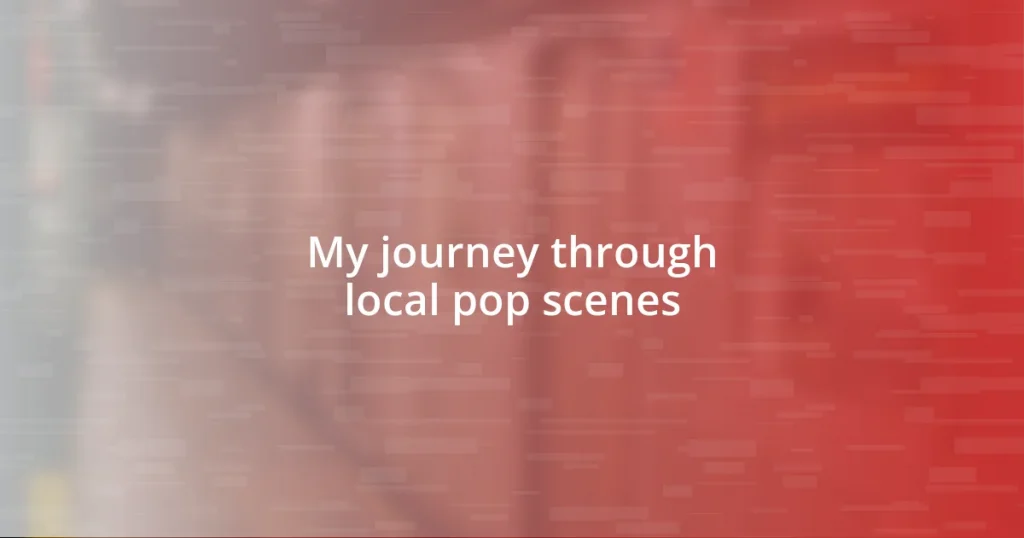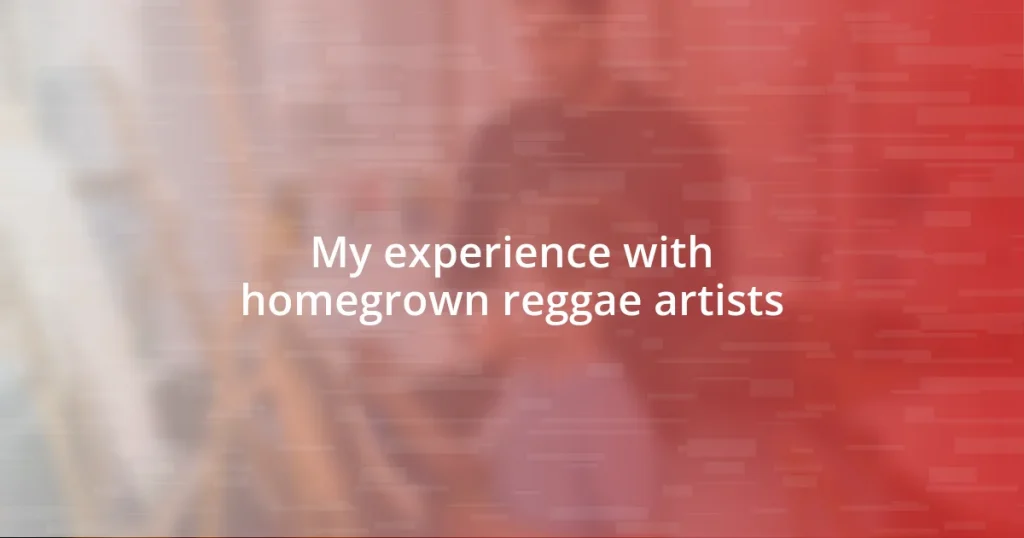Key takeaways:
- Sustainable festivals promote ecological awareness and support local economies, enriching attendees’ experiences through community involvement and local vendors.
- Effective waste reduction strategies, such as digital tickets and clear signage, significantly minimize environmental impact while enhancing attendee participation.
- Future trends include zero-waste initiatives, the integration of technology for sustainability education, and partnerships with environmental organizations, fostering a collective commitment to ecological responsibility.
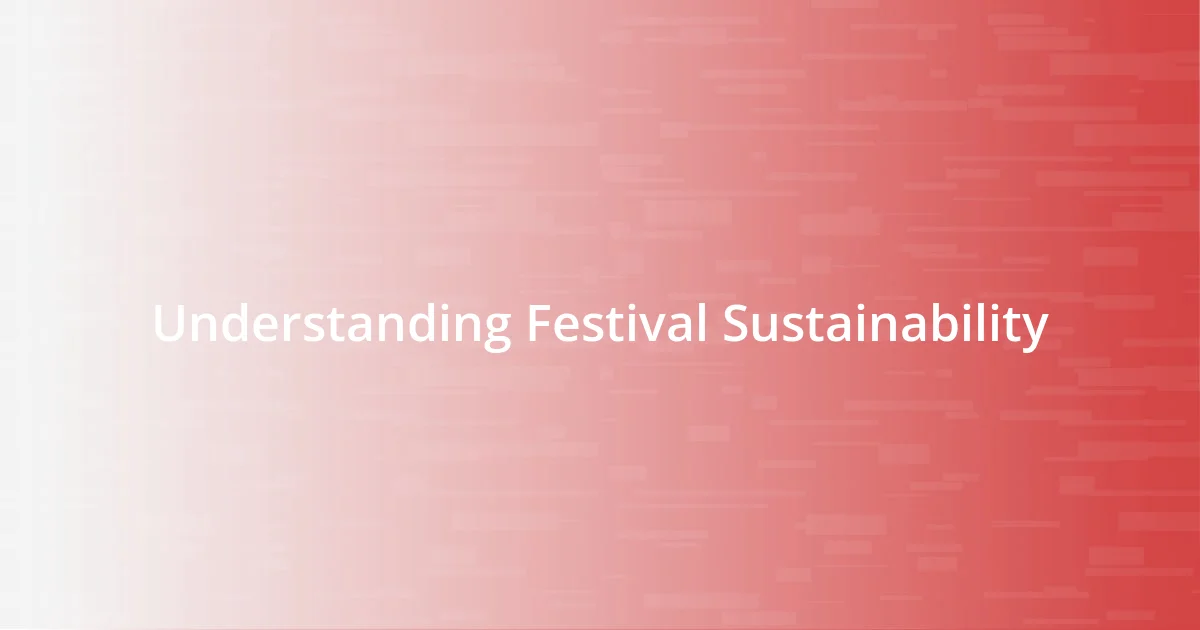
Understanding Festival Sustainability
Festival sustainability is all about minimizing the ecological footprint of events while creating memorable experiences for attendees. I remember attending a local music festival where they encouraged attendees to bring their own refillable water bottles. It not only made me feel environmentally conscious but also fostered a sense of community as we all contributed to reducing plastic waste together.
When I think about the practices of sustainable festivals, I often wonder: how can we balance the joy of celebration with the need to protect our planet? For example, one festival I visited implemented a comprehensive recycling and composting system that turned waste into valuable resources. Witnessing such initiatives firsthand made me realize how small changes can lead to a significant positive impact on our environment.
Moreover, sustainable festivals promote local economies by sourcing food and crafts from community vendors. This adds a unique touch and authenticity to the festival experience—I still reminisce about trying delicious local dishes that I wouldn’t have normally encountered. That connection to the local culture made the festival more enriching for me and highlighted the importance of supporting sustainability on multiple levels.
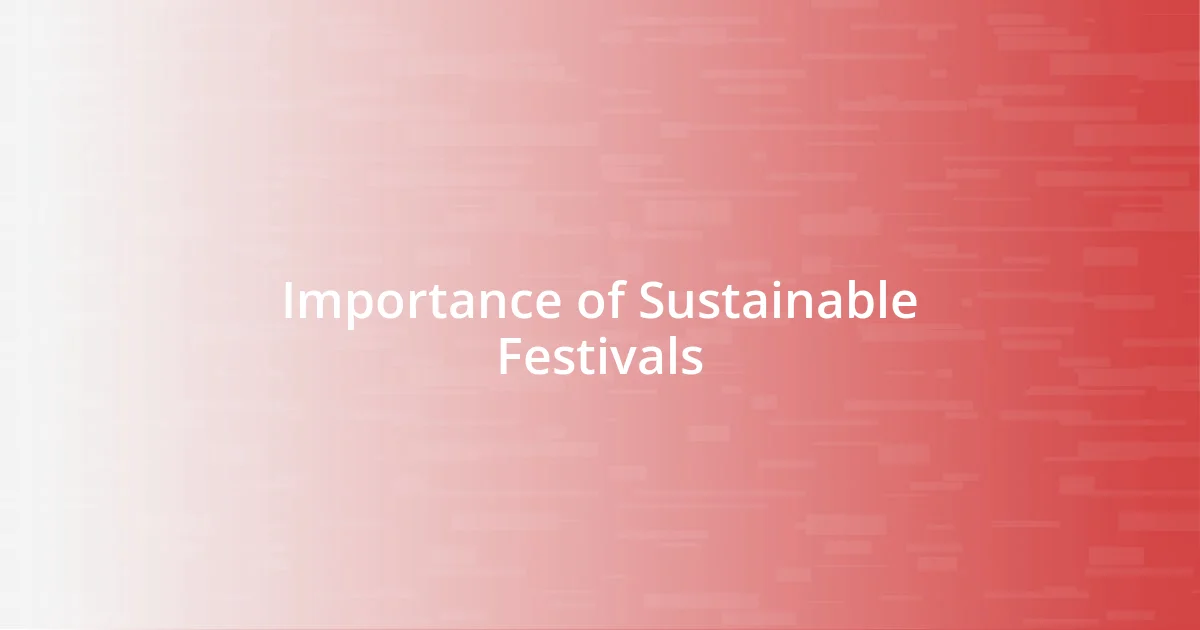
Importance of Sustainable Festivals
It’s fascinating to consider how sustainable festivals play a pivotal role in environmental stewardship. When I attended a green music festival a couple of years ago, I was struck by the attention given to waste management and energy use. They had solar panels powering stages and multiple stations for composting, recycling, and waste separation. This proactive approach made it clear that every detail counts, and knowing I was part of an event that cared for the planet added to my overall enjoyment and satisfaction.
The significance of sustainable festivals can be summed up in a few key points:
- Environmental Awareness: Such festivals inspire attendees to think about their impact on the environment.
- Community Engagement: They often involve local artists and vendors, fostering community spirit and connection.
- Learning Opportunities: Many festivals include workshops on sustainability, giving attendees valuable insights to take home.
- Healthier Choices: With an emphasis on local and organic food options, sustainable festivals encourage healthier eating habits.
Every time I reflect on that festival experience, it becomes clear how interconnected celebration and sustainability can be, amplifying both joy and responsibility in the most beautiful way.
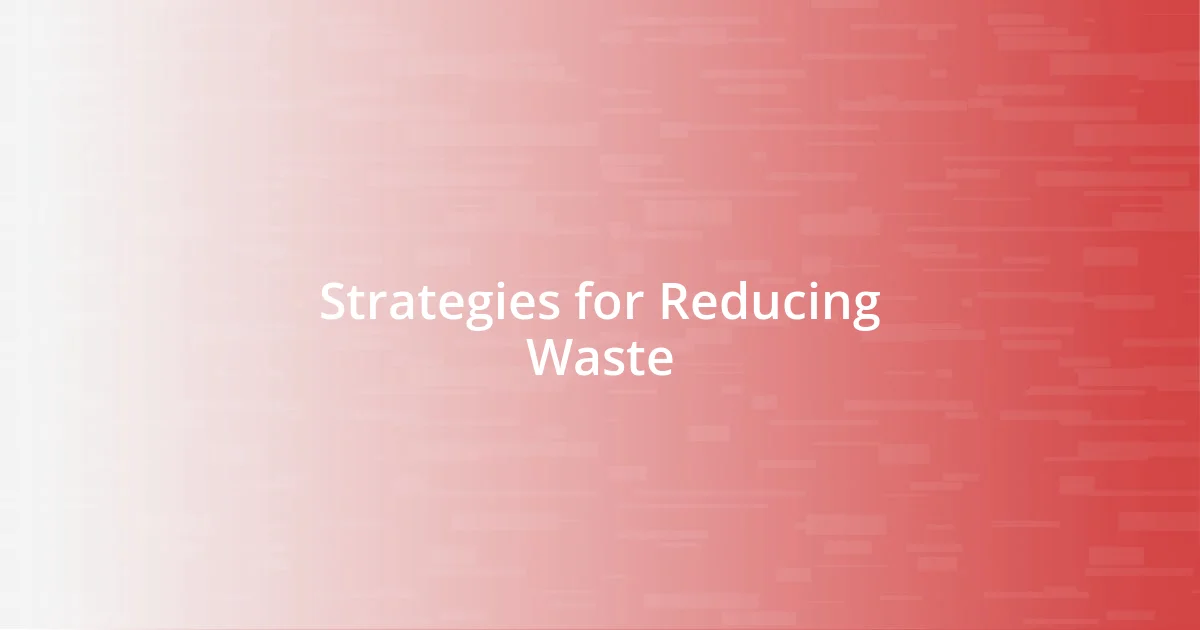
Strategies for Reducing Waste
Reducing waste at festivals is a dynamic challenge, but I’ve discovered some effective strategies through observing various events. One particularly impactful approach is utilizing digital tickets instead of printed ones. At a festival I attended last summer, going completely paperless meant significantly less waste. Plus, it streamlined the entry process, making it quicker for everyone, which I found to be a win-win for both the environment and attendees.
Another successful strategy involves providing clear signage for waste disposal. At a music festival, they thoughtfully placed colorful bins specifically for recycling, composting, and trash, with simple visuals for guidance. I found this incredibly helpful as it made it easy for attendees to sort their waste correctly. This attention to detail not only reduced contamination in recycling but also raised awareness about proper waste management.
Lastly, promoting the use of reusable items is essential in waste reduction efforts. I once visited a festival where there was an impressive campaign encouraging people to bring their own utensils and containers. Attendees received discounts at food stalls for doing so. This initiative resonated with me, stemming from a commitment to reducing single-use plastics. I left feeling that such small choices could ignite bigger changes in our approach to sustainability.
| Strategy | Description |
|---|---|
| Digital Tickets | Eliminates paper waste and speeds up entry processes. |
| Clear Signage | Guides waste sorting, reducing contamination in recycling. |
| Reusable Items | Encourages attendees to bring their own utensils, reducing single-use plastics. |
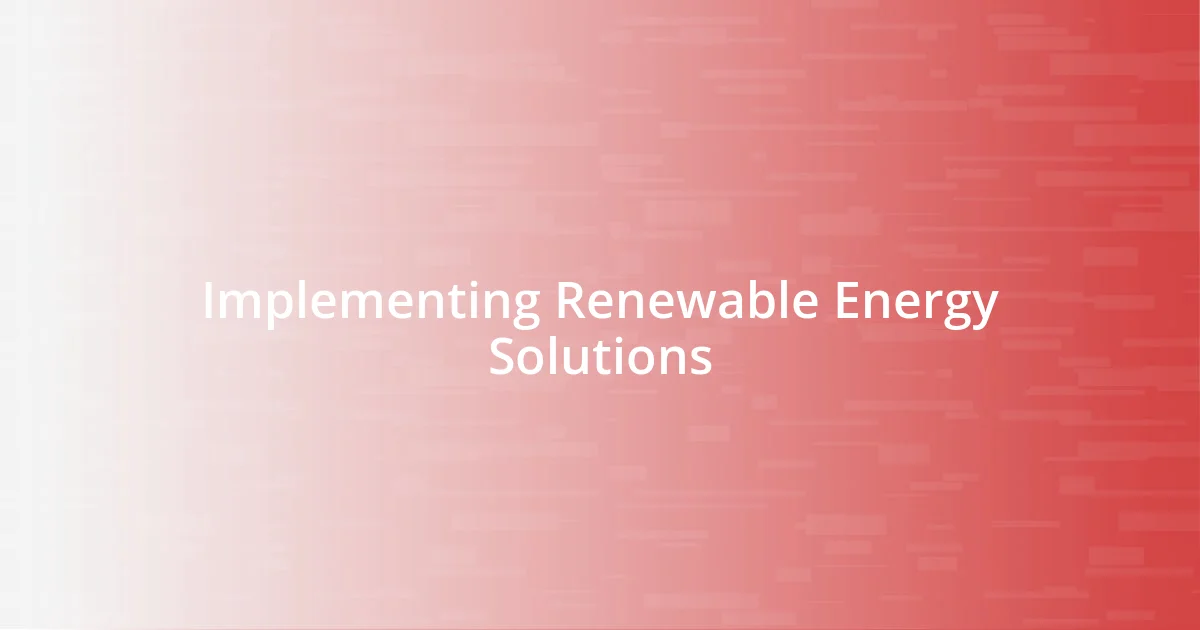
Implementing Renewable Energy Solutions
When I think about implementing renewable energy solutions at festivals, a standout memory comes to mind from a vibrant event where they used wind turbines to power the stage. It was fascinating to watch the small turbines spin, generating energy while festival-goers danced and enjoyed performances. The sheer excitement in the air made me wonder—how many people really appreciated the clean energy behind their favorite bands? It’s a refreshing reminder that renewable energy can seamlessly enhance our experiences, not just sustain them.
At another festival I attended, I was thrilled to see an array of solar power setups scattered throughout the venue. Seeing those solar panels not only charged equipment but also educated attendees about their potential. I even overheard some young parents discussing how they could install similar systems at home. It struck me then that festivals aren’t just about entertainment; they can serve as powerful platforms for education about sustainability. How impactful would it be if every festival showcased renewable technologies as part of the overall experience?
Also, incorporating biodiesel generators really transformed one particular event I enjoyed. These environmentally friendly generators significantly reduced carbon emissions compared to conventional fossil fuel generators. I remember feeling proud to be part of a community that prioritized cleaner energy. It made me think—if festivals can run on renewable energy, why shouldn’t other large gatherings follow suit? The shift toward renewable energy isn’t just a trend; it’s an opportunity to set an example for wider society.
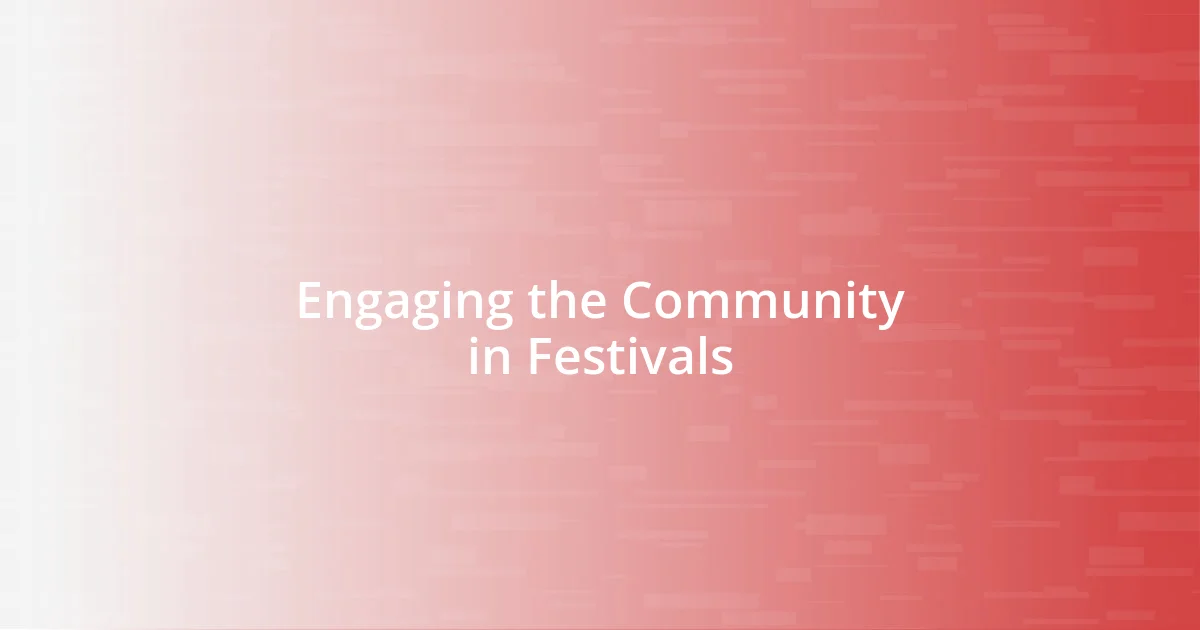
Engaging the Community in Festivals
I’ve noticed that community engagement at festivals goes beyond just attending; it’s about belonging and contributing. One time, I participated in a local arts festival where local artists were invited to showcase their work. The atmosphere was electric, as community members rallied around these talented individuals. People weren’t just there as spectators; they were actively discussing the artworks, offering support, and even purchasing pieces. It was heartwarming to see how a festival could foster connections and pride among locals.
At another event, I volunteered to help with organizing workshops for kids, teaching them how to create crafts from recycled materials. Seeing their excitement as they transformed waste into art left a lasting impression on me. The parents were equally engaged, chatting and sharing tips on sustainability. This hands-on involvement not only enriched the festival experience but also instilled values of creativity and environmental responsibility in the next generation. How wonderful is it that festivals can become a platform for learning and community bonding?
Moreover, I’ve found that inviting local businesses to set up stalls can significantly enhance community ties. At one particular food festival, I tasted dishes from local chefs who told captivating stories behind their recipes. The pride they took in their craft was palpable, and it made me appreciate my local cuisine on a deeper level. By supporting local vendors, festivals can help boost the economy while creating a vibrant, diverse atmosphere. Isn’t it amazing how festivals can transform into a celebration of our community’s unique culture and resources?
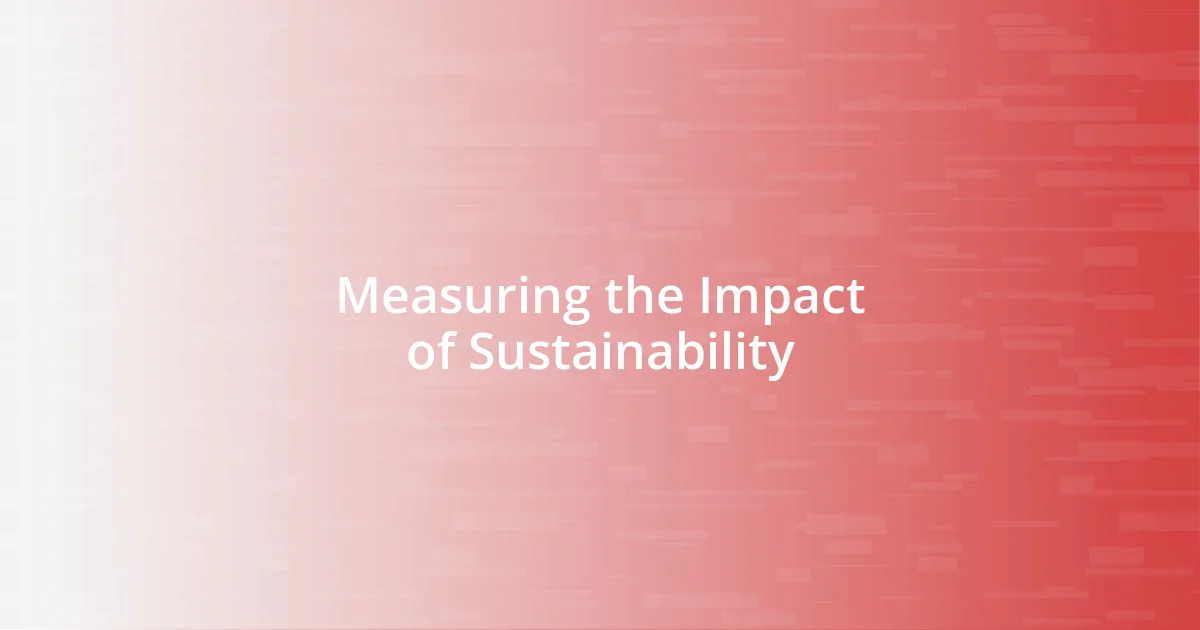
Measuring the Impact of Sustainability
When it comes to measuring the impact of sustainability at festivals, I can’t help but think of the eco-friendly footprint calculators I’ve encountered. At one festival, I eagerly filled out a survey estimating our collective waste and energy usage. The results were eye-opening—it was amazing to see how even small changes in our habits could lead to significant environmental benefits. Shouldn’t every festival utilize this kind of measurement to make their impact more transparent?
I also remember attending an event that shared its sustainability metrics with attendees. They showcased how much water was saved, energy produced, and waste diverted from landfills. It was fascinating to engage in those discussions, feeling more connected to the event as I understood the tangible effects of our choices. How motivating it is to see that our fun can have lasting benefits for the planet!
One key takeaway from my experiences is that calculating metrics often inspires innovation. I participated in a brainstorming session where organizers shared their data on food waste. The results led us to implement a food donation program, collaborating with local shelters afterward. Seeing the direct impact we could have on our community made me realize that sustainability is not just about the environment—a festival can catalyze real social change. What if more festivals were to take this leap and measure their impact in meaningful ways?
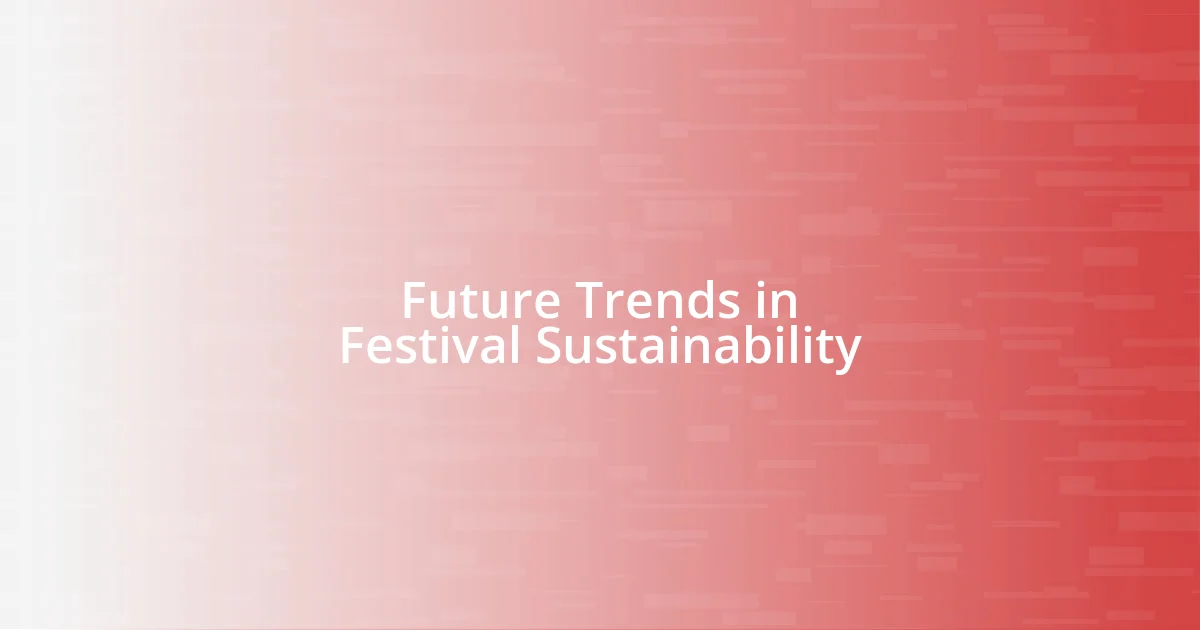
Future Trends in Festival Sustainability
With the rise of eco-friendly initiatives, I’ve noticed a shift towards zero-waste festivals. I recently attended a music festival that took impressive steps to minimize waste. Attendees were encouraged to bring their own reusable containers for food, and I felt a sense of unity when I saw everyone making an effort. How powerful is it to see a collective commitment to the planet in action?
I’m also excited about the use of technology in promoting sustainability. At one green festival, there were QR codes on displays that taught us about sustainable practices directly related to the exhibits. It was enlightening to scan and learn about each initiative while enjoying the event. Isn’t it fascinating how technology can enhance our understanding of sustainability and engage us more deeply?
I believe that partnerships between festivals and environmental organizations will become increasingly common. During a recent festival, I volunteered with a local conservation group that set up educational booths. Witnessing the conversations unfold and seeing attendees actively interested in reducing their carbon footprint was truly inspiring. Can you imagine the impact if all festivals foster these kinds of collaborations? We stand on the brink of a movement that could redefine what festivals represent in our society.





